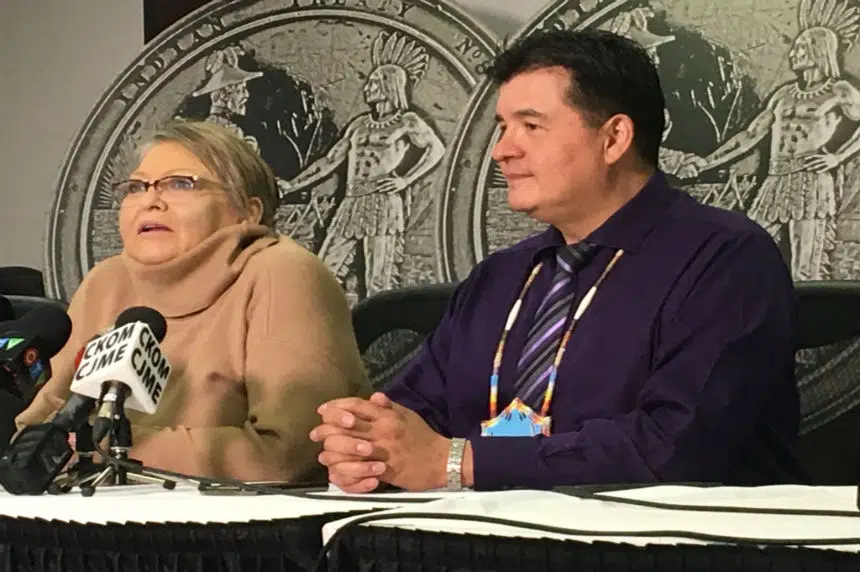COVID-19 is weighing heavy on the minds of First Nation communities in Saskatchewan.
“We are the most vulnerable of the vulnerable,” said Federation of Sovereign Indigenous Nations (FSIN) vice-chief Heather Bear on Friday in Saskatoon.
“As you know First Nations people are highly represented with diabetes.” I would say we are ill-equipped to deal with something of this nature in terms of the medical supports in the community.”
FSIN called on governments to ensure that their communities are given high priority for health services, potential anti-viral vaccines, and that health and emergency management investments are increased.
Local communities have activated their own pandemic plans while Fond du Lac has closed its school. Internally, the FSIN is taking measures to keep the virus out of their communities and prevent employees from catching it. All FSIN-related sporting events, gatherings and conferences are postponed. Travel outside the province has stopped and non-essential employees are working from home.
Bear said First Nations face unique challenges when it comes to following the government’s advice to containing the spread of the virus. She visited a community with 19 people living in one house, pointing to the difficulty that poses if someone had to self-isolate.
“When you look at multi-families in one home that’s built for one family of five. You can’t imagine how susceptible our young children are. You’re looking at disease spreading much faster than it would in a regular household.”
“I think it would be disastrous. We’re looking at communities that are so close-knit. They gather together continuously.”
Chief Bobby Cameron said northern and remote communities are the biggest focus of the FSIN executive.
“I drove from Prince Albert to Hatchet Lake. It’s a nine-hour drive one way. Now, can you imagine the sickly and the vulnerable to get the services or to get medicines? We’re worried.”











